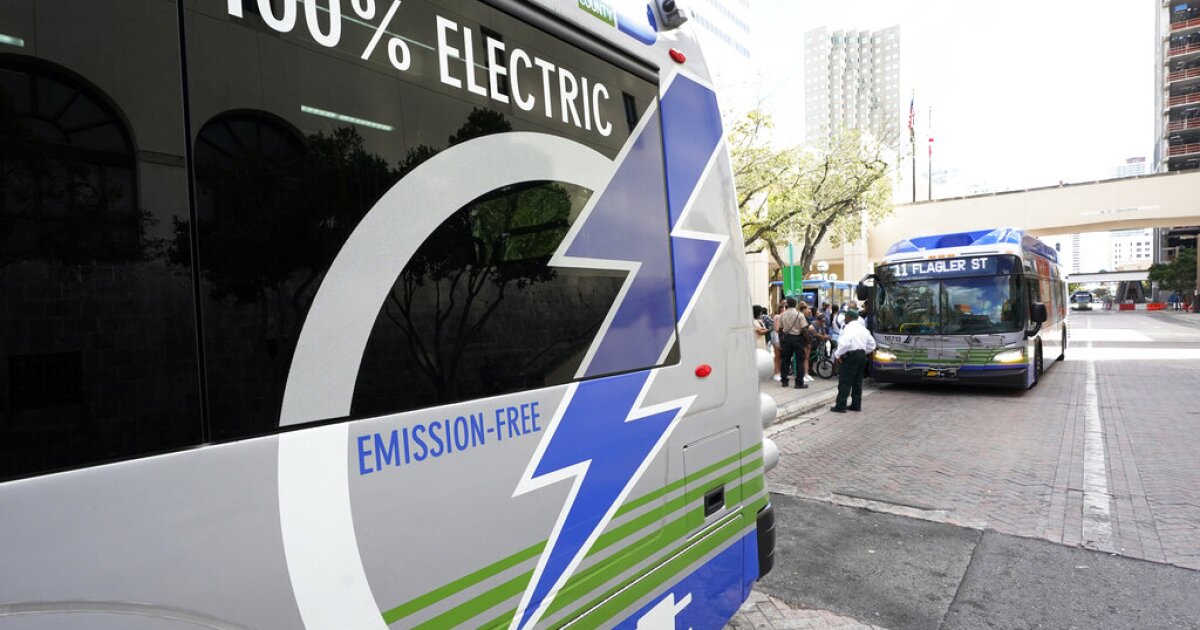

Proterra, one of the largest electric bus manufacturers in the United States, and its surprise bankruptcy filing reveals the struggles that green-friendly companies face in the current economy.
The California-based electric bus manufacturer filed for bankruptcy on Tuesday, to the surprise of many investors. President Joe Biden had touted the company’s environmentally friendly approach to public transportation several times, but it had failed to gain enough traction to justify its operations. While Proterra CEO Gareth Joyce alleged that the company failed due to “various market and macroeconomic headwinds,” other economic forces may have contributed to its fall.
UP FOR DEBATE: TRUMP, DESANTIS, AND 2024 GOP HOPEFULS’ STANCE ON CLIMATE AND GREEN AGENDA
Here are some reasons Proterra surprised everyone with its decision to file for bankruptcy.
Buses make some sense to electrify due to them operating in fleets and the overhead cost of electricity staying lower than the petroleum required to use the everyday routes most buses have. However, buses were considered an unreliable source of income in part due to the inconsistent rate by which bus networks typically purchase vehicles. They also often require more customization than the average car purchase would demand.
“These transit agencies demand highly customized buses that align with the other buses in their respective fleets,” Proterra wrote in a filing. “Therefore, the manufacturing process requires much customization, which makes scaling the business difficult and requires an extensive amount of working capital.”
Deals with transit agencies can also often be competitive, TechCrunch notes, which occasionally means that companies such as Proterra may have to reduce the price of a product to win a bid. The contracts for vehicles can often take more than a year to finalize, which often means that revenue arrives slowly.
The company’s nickel-based battery chemistry may have also unnecessarily increased the cost of the product’s creation, Nikolaos Soulopoulos, head of commercial transport research at BloombergNEF, told Semafor. The company spent $6.5 million more on materials in its first quarter than the revenue the product generated.
Proterra reported a loss of $250 million in the first quarter of 2023, five times more than it lost in 2022. The company also laid off 300 staff in January.
CLICK HERE TO READ MORE FROM THE WASHINGTON EXAMINER
Proterra’s leadership was aware of its economic struggles and attempted to work with bankers to find someone to take the company for months, court filings revealed. However, the company failed to find an interested buyer.
Biden hyped up Proterra in the past, even taking a virtual tour of a Proterra manufacturing facility in South Carolina in 2021, where he revealed he used to be a bus driver.





